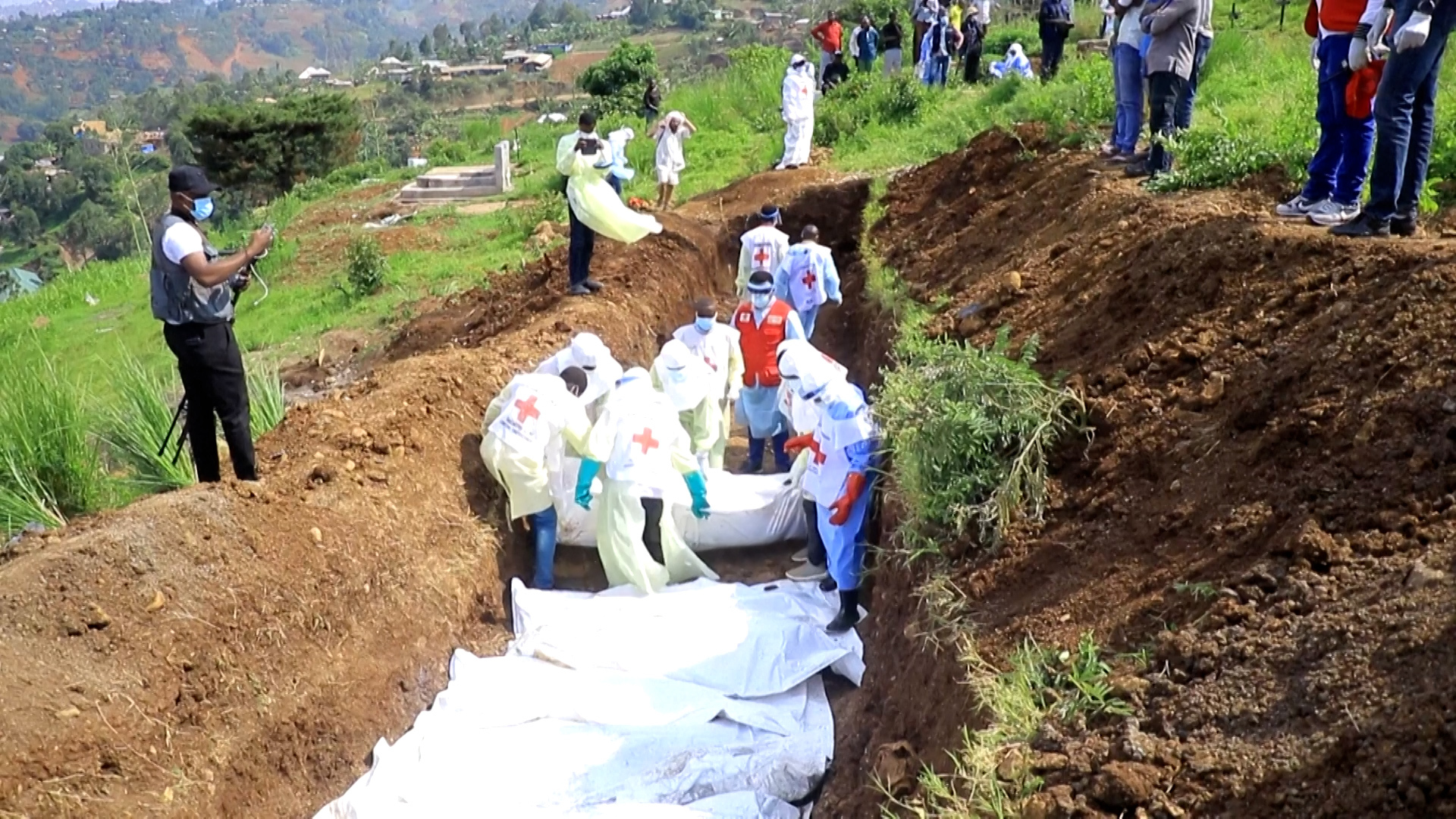Africa
Video: Red Cross buries 18 bodies in mass grave amid Bukavu clashes

Mass Graves in Bukavu: A Somber Reminder of Ongoing Conflict
Introduction: Devastation in the Aftermath of Violence
The eastern region of the Democratic Republic of Congo (DRC) has long been a hotspot of conflict, with various armed groups vying for control. Recent clashes in the city of Bukavu, a strategic location near the Rwandan border, have left a trail of devastation. After weeks of intense fighting, including involvement from the notorious M23 rebel group, the community is now grappling with the grim task of burying the dead. The Red Cross, in collaboration with local authorities, has stepped in to organize a mass burial for the victims, as many families have been unable to retrieve the remains of their loved ones. This somber act serves as a heart-wrenching reminder of the human cost of conflict and the resilience required to rebuild in its wake.
Conflict in Bukavu: A Region Torn Apart by Violence
Bukavu, a city known for its lush landscapes and vibrant culture, has become a battleground in a conflict that has simmered for decades. The M23 rebels, a group with historical ties to the region, have been at the center of the latest wave of violence. This armed group, named after the March 23, 2009 peace agreement, has been responsible for significant instability in the region. Their clashes with government forces and other armed factions have created a climate of fear and instability, displacing thousands of civilians and leaving many more in the crossfire. The recent surge in violence has overwhelmed local infrastructure, with hospitals struggling to treat the wounded and communities left to mourn the dead.
The Mass Burial: A Dignified Farewell Amidst Chaos
In the aftermath of the fighting, the Red Cross has taken on the solemn task of collecting and burying the remains of those who lost their lives. The organization, known for its neutrality and commitment to humanitarian aid, has worked tirelessly to ensure that the deceased are treated with dignity, even in the face of such chaos. Families, many of whom have been separated from their loved ones due to the conflict, have been unable to collect the bodies themselves, adding to their anguish. The mass burial, while necessary, is a poignant reminder of the scale of the tragedy and the immense challenge of reconciling loss on such a scale. Each grave represents a life lost, a family torn apart, and a community left to pick up the pieces.
The Human Toll: Stories of Loss and Resilience
Behind every statistic and every grave lies a story of immense personal loss. Parents have lost children, spouses have lost partners, and children have been orphaned. The emotional toll of such a tragedy cannot be overstated. In the face of such suffering, the resilience of the human spirit is both inspiring and heartbreaking. Communities have come together to support one another, sharing what little they have and finding strength in solidarity. Despite the overwhelming grief, there is a determination to rebuild and move forward, but the scars of this conflict will linger for years to come.
The Role of Humanitarian Organizations: A Lifeline in Crisis
Organizations like the Red Cross are often the last line of hope in such dire situations. Their work extends beyond the immediate task of burying the dead; they also provide critical support to survivors, including medical aid, food, and shelter. In a region where infrastructure has been decimated and resources are scarce, these organizations are a lifeline for those affected by the conflict. Their efforts are a testament to the power of compassion and the enduring commitment to upholding human dignity, even in the darkest of times.
Conclusion: Looking Beyond the Graves, Toward a Fragile Peace
As the people of Bukavu lay their dead to rest, they are also beginning the long and arduous journey toward rebuilding their lives. The path to peace is fraught with challenges, from negotiating with armed groups to addressing the deep-seated issues that have fueled the conflict for so long. While the mass burial marks the end of one chapter in this tragedy, it also serves as a reminder of the work that lies ahead. The international community must continue to support efforts to stabilize the region, while local leaders must work toward dialogue and reconciliation. The graves in Bukavu are a somber reminder of the past, but they also stand as a testament to the resilience of a community determined to build a better future.











